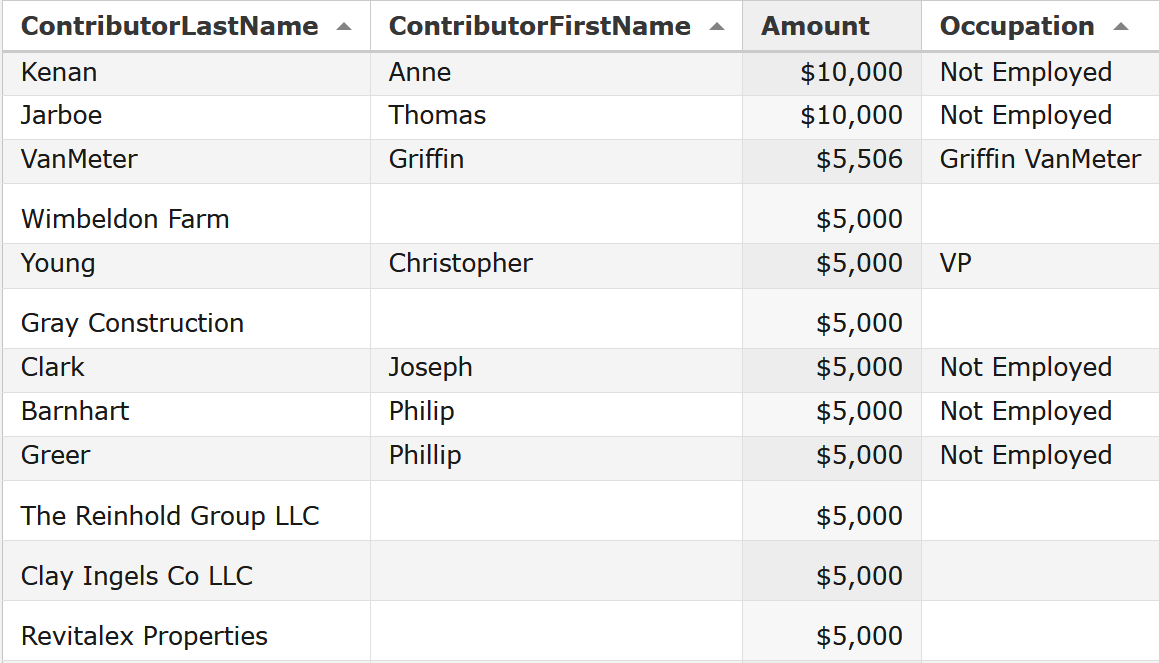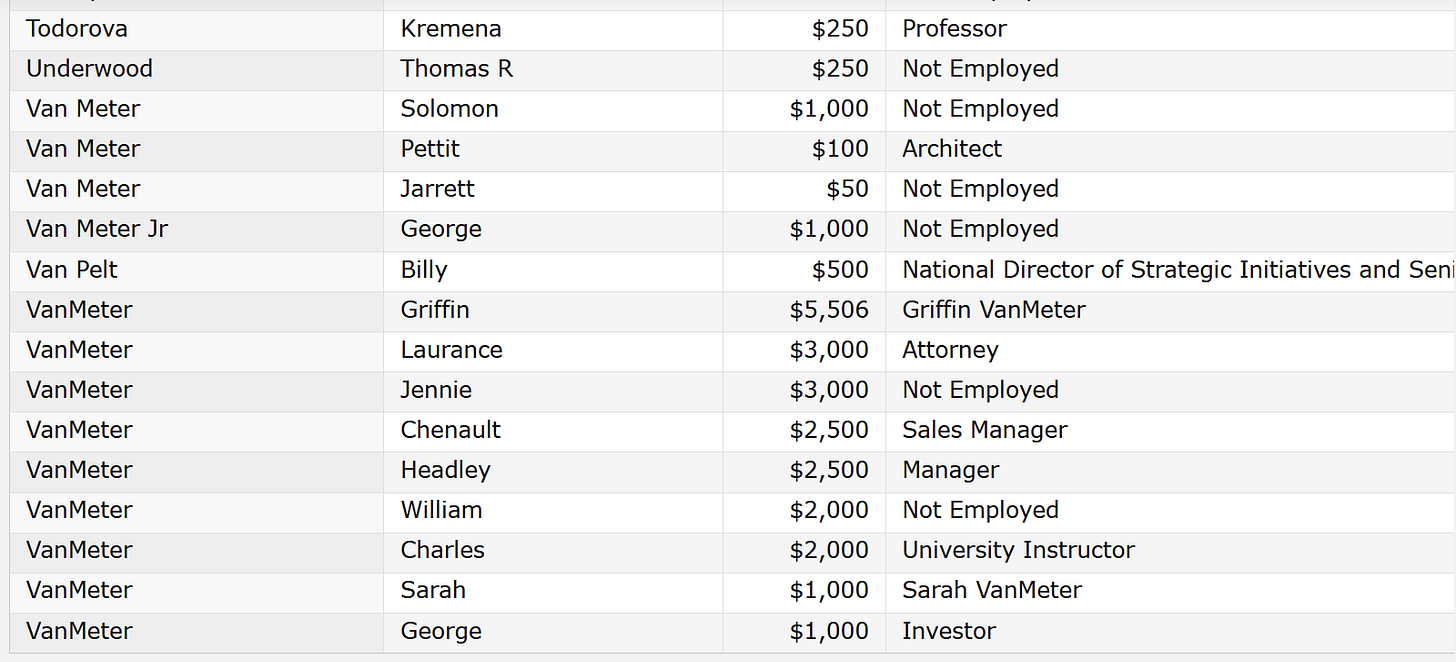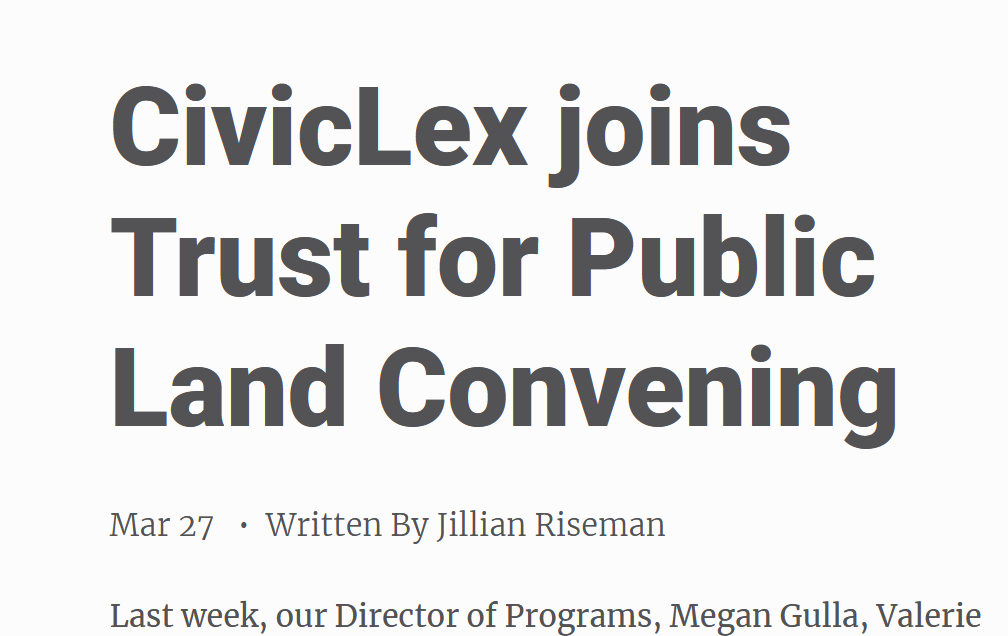Becoming LFUC
Reading W.E. Lyons' The Politics of City-County Merger during the Sustainable Parks Funding campaign
Every few months, I make the trip down to the Book Seller, a used book store housed in the basement of the downtown library. Some trips back, I purchased for $7 a hardback copy of The Politics of City-County Merger, W.E. Lyons account of the early 1970s campaign to merge the city of Lexington with the county of Fayette.
While I personally loved it, I don’t recommend the book generally. A professor of political science at the University of Kentucky, Lyons was also a key advocate for what would become today’s merged Lexington-Fayette Urban County (L-FUC) governance structure. His book is insightful but dry in the way that social science books often are. Entire chapters are given over to scientific analyses of city polls, literature reviews of previous city-county mergers and voter behaviours, and detailed revision timelines of the L-FUC charter as it barrelled toward completion.
Committed bluegrass-philes, or political science majors interested in period research on city-county mergers, may find the work as appealing as I did. Though even then, I’d suggest pairing Lyons’ 1977 book with the 2015 publication The Spider Election, a first-person memoir of the same city-county transition written by Foster Pettit, the last mayor of Lexington and also first mayor of the merged L-FUC.
I read Pettit’s book several years ago and also enjoyed it, but only recently began reading Lyons’ insider-academic account of how the city decided in favor of merger. Consequently, my reading has overlapped with the present-day L-FUC campaign to create a new local tax to fund park projects across the county (but not for upkeep or park programming).
The juxtaposition has made it difficult to resist comparisons between the two campaigns. In both cases, civic victory rests upon the ability to secure enough citizen votes in a public referendum to abolish or alter our governing charter.
Here are a few of these merged observations from my readings of the book.
Class and L-FUC advocacy
An academic of the old school, Lyons is up front about the class distinctions that typify citizen calls for city-county merger. Drawing from both his personal experience and the academic literature on city-county mergers, Lyons observes,
There is little question that the proponents of city-county consolidation have been consistently and overwhelmingly drawn from the middle and upper classes. They are usually backed by the Chamber of Commerce, the League of Women Voters, and other civic or business groups representing social and economic elites. Their major arguments, moreover, have been cast in terms of economy and efficiency in government, a concept that makes sense primarily to those used to thinking in terms of such managerial concepts as economics of scale, cost-benefit ratios, and long-range investment priorities.
In the case of Lexington, Lyons traces merger to “a small band of citizens who had been meeting on a rather informal basis since late 1969” with a common interest in being a “‘friendly critic of local government bodies.”
In this capacity, the Government Options (GO) group attempted to monitor city and county boards and commissions, and to clip and circulate newspaper articles focused on city corruption, like a bell-bottomed version of present-day CivicLex. Feeling that group members were both spread too thin and not making a big enough difference in Lexington politics, GO decided to take on City-County merger as a way to make their mark.
Of GO group, Lyons writes in a footnote on page 170:
All members of the group had attended college and almost 60 percent of them had earned advanced degrees. Over a third held PhD. or MD. degrees. Approximately half came from households with incomes exceeding $30,000 a year [$226,000 in 2024]. The remaining members could be easily classified as middle to upper middle class in terms of income.
GO group, of which Lyons was a constituent member, did in fact partner with the Lexington Chamber of Commerce, the League of Women Voters, the Rotarians, the Jaycees, and other civic groups to circulate petitions in 1970 that called for “a referendum [to] be held on the question of adopting the urban county form of government.”
GO’s early work would be bolstered in 1972 with the election of a different set of community elites led by Foster Pettit, a Bell Court resident recently moved down the block to South Ashland. Pettit, as recounted in The Spider Election, ran at the head of a slate of candidates, “Five Good Men for a Change,” that promised to advocate for city-county consolidation. These Five Good Men, all elected, were Foster Pettit (Mayor) and Bill Hoskins, Dick Vimont, Dr. Farra VanMeter, and Scott Yellmen (City Council Members).
The two civic groups of elites, GO and Five Good Men, would themselves merge into an expanded spinoff advocacy group, the Committee to Insure Good Government (CIGG). CIGG was charged with marketing to citizens on the need to vote for the merger in the upcoming 1972 election.
Class and Parks Tax advocacy
Thanks to the reporting of the Lexington Times’ Paul Oliva on the modern-day funders of the nonprofit Sustainable Parks Funding, we can make both specific and generic comparisons between the 1970s citizen groups for merger and those of 2024 for a sustainable park tax.
In a nod to the dynastic nature of Lexington’s civic power, the son of former Five Good Men-member Foster Pettit, Van Meter Pettit, is a direct financial supporter of our modern-day CIGG. Elsewhere, the ubiquitous Van Meter name appears across the citizen campaigns of both eras, with northside developer Griffin Van Meter both a major donor and campaign advisor for the Sustainable Parks Fund campaign.
More generally, though, the Sustainable Parks Funding donations showcase a clear upper class bent. If anything, advocates for parks funding have skewed even richer over the past 50 years since GO once roamed the halls of city board meetings.

And as with the push for merger, Sustainable Parks Funding has partnered with a variety of business and civic groups to usher through support for the Parks Tax. Some of these groups, like CommerceLex, are established organizations that also feature in Lyons’ account of L-FUC merger. Others, like Bluegrass Community Foundation and the Fayette Alliance, have arisen in the years since city-county merger.
A merger advocate and also a bonified academic, not to mention a meeting-notes-carrying member of GO group, Lyons does not interrogate further the class dimensions of his cohort who pushed for, managed, promoted, and then authored the new L-FUC charter. But class dimensions do seem substantial enough for further consideration.
Of course, rich folk have good ideas, too. So do college educated people, some of whom hold expertise in things like re-writing government charters or city-wide park tax commitments. It goes without saying: the fact that an upper class group advocates for merger or for parks does not, in itself, negate these ideas.
But wealth does seem to shape these civic ideas in particular ways. The limits, the vision, the budget, the committee membership, the drafting, the revisions, the bureaucratic process, the final copy, the reporting, the civic capital/spoils. Details matter. We are fresh off a decade, the 2010s, in which this same class of leaders blew our collective civic wad on a world class Rupp Entertainment Zone, all told nearly $1 billion in city-state money. We have a right to ask: do we want their first draft this time around? Whose table are we gathering ’round?
Because if I understand the Gray-Meter-Pettits correctly—at least based off their extensive previous public record of entitled civic advocacy—they want a Park Tax to help them underwrite a $50 million World Class boat ramp into the Kentucky River, to be placed 200 yards from an already-functioning local class boat ramp run by the most excellent Proud Mary Barbecue.

Or maybe they jiving some more Coldstream Park cash to go along with the tens of millions in TIF and ARPA and other public money that’s already been sprayed there over the course of last decade’s civic orgy. Either way, I don’t want those elite things. And yet, I love my parks.
Lyons notes that his professional/managerial class of advocates, owing to their various areas of credentialed expertise, “often assume that their arguments are self-evident and irrefutable.” He doesn’t state it, but I will. This obtuseness makes class considerations or other criticisms of their work difficult to raise and nearly impossible to register.
Data to wage the campaign
A second chunk of Lyons’ study involves analysis of different opinion polls that measured support for city-county merger. The polls were commissioned by different actors:
a 1971 poll conducted by the previous Mayor who was an opponent of merger and subsequently suppressed until GO group gained access to it.
an informal poll of people known to the author
a private 1972 poll conducted by the CIGG advocacy group.
These polls were not simply used by the political scientist for after-the-fact academic analysis of a merger campaign for a UK Press publication. Rather, the polls and other data were used by Lyons and his cohort to actively craft CIGG messaging to best persuade citizens to vote for their merger, a manufacturing of consent. Marketing.
As the Parks Tax advocates craft their own message, I am left to wonder what citizen data has been used to inform their own marketing campaign to manufacture citizen consent? Much of the public statistics on the Sustainable Parks advocacy website appear to derive from a 2018 study done by Lexington’s Parks Department. Is that where this figure came from?
Surely, as with Lyons group of college-educated elites, these groups have done follow-up polling about their specific Parks Tax proposal, in addition to further harvesting of citizen data to help target their messaging to you and me.
What civic groups have created or otherwise helped contribute to this data to manufacture Lexingtonian’s parks consent? I sure hope it’s not our favorite non-profit news outlet that has done this work.
That would be underhanded and unethical, however successful the strategy may prove to be.











Worth noting that the author of the CivicLex "news" article linked at the end is now the PR person for the Urban County Council. The place is a good stepping stone if nothing else